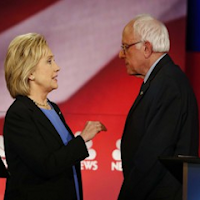
by Michael Handley
Pursuant to Texas state election law, new Voter Registration Certificates are mailed to all "Active Status" registered voters in December of odd numbered years. “Suspense Status” voters do not receive a new certificate.
New blue color certificates were printed by the election registrar office of each Texas county and mailed between November 15th and December 5th. Voters whose renewal certificates are returned to the registrar as undelivered will be placed in "suspense" by January 2, 2016, following the mailing.
The certificates are valid for two years beginning January 1, 2016 through December 31, 2017.
Certificates must list jurisdictional numbers for seven designated territorial units: Congressional & State Legislative Districts, County Commissioners’, Justice of the Peace precincts and the City and School District precincts, if defined. In addition to the aforementioned, counties may include 3 additional districts for a total of ten jurisdiction.
You MUST be registered to vote in the county in which you currently reside, and have a currently dated government issued photo I.D., to vote in any Texas election. You must be registered, or have mailed your registration application to be postmarked, no later than midnight of the thirtieth day before the election date. And, as of the date of this article, you are still required to present photo I.D. at the polling place to vote in person. The last day to register to vote in any election is the 30th day before Election Day..
NOTE: On August 10, 2016, US District Court Judge Nelva Gonzales Ramos of Corpus Christi issued an order prescribing what Texas voters need to bring to the polls when they vote in person. The new procedures remain in effect until further Court notice.Every registered Texas voter should have received their new 2016-17 blue Voter Registration Card (VRC) by the first part of January 2016, or within thirty days after you submitted your registration application. If you asked to register to vote while updating your driver's license with the Texas DPS, and you never received a VRC, your registration application may not have been processed.
New Procedures for Voting in Person All citizens wishing to vote must still be on the official list of registered voters. For the November 8th election, the deadline to register is October 11th.
Voters may still use one of seven (7) forms of photo ID, listed below. IDs may be expired up to four years. (Previously IDs could be expired no more than 60 days.)
ADDITIONALLY, new procedures ordered by Judge Ramos allow registered voters who have not been able to obtain one of the photo ID's listed above to complete and sign a form and present one of the following documents to vote a regular ballot:
- Driver license
- Texas Election Identification Certificate (EIC)
- Texas Personal Identification Card issued by DPS
- Texas license to carry a handgun issued by DPS
- US military identification card containing the person's photograph
- US citizenship certificate containing the person's photograph
- US passport
The Judge also ordered:
- Valid voter registration certificate (card)
- Certified birth certificate
- Current utility bill
- Bank statement
- Government check
- Paycheck
- Any other government document with the individual's name and address
- *The one-page form is called the "Voter's Declaration of Reasonable Impediment or Difficulty"
Judge Ramos' order followed a July 2016 decision by the full US Fifth Circuit Court of Appeals ruling the existing Texas Voter ID requirements had a discriminatory effect and directed Judge Ramos to arrive at an interim solution. She will continue to consider the subject of discriminatory intent.
- Election officials cannot question a voter about the use of an ID type
- Poll watchers may never question a voter about Voter ID issues
- The ID address does not have to match the voter registration address. It was also made clear that the ID address does not have to match the voter registration address.
If you have not received a new VRC, you may NOT be properly registered to vote. You should immediately check your registration status and take action to properly register, if you find you are not registered to vote in the county where you reside.

To check your Collin Co. registration status - click here. To check your registration status in another Texas county - click here. If you find you are not registered to vote, you can find the Voter's Registration application for Collin Co. by clicking here or any county by clicking here. For specific information about voting in Texas, click here to find the Secretary of State’s pamphlet on Texas Voting.




